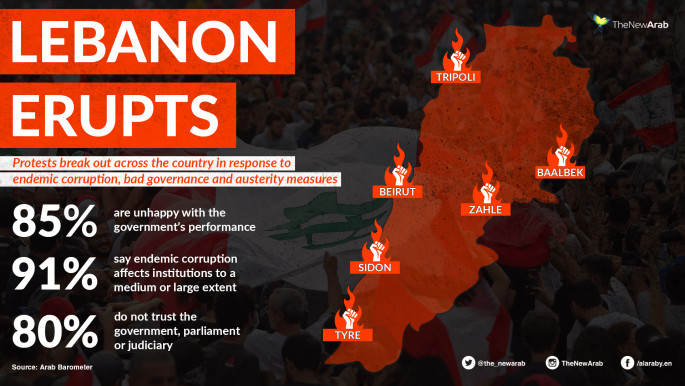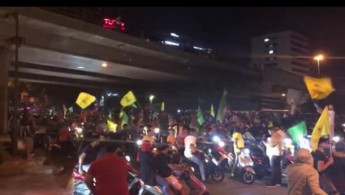Lebanese army stops Hezbollah, Amal bikers from harassing protesters
Read more: Five things you need to know about the protests in Lebanon
Hezbollah and Amal are the two main Shia Muslim political parties in Lebanon. Both have ministers in the Lebanese government and Nabih Berri, the leader of Amal, is also the Speaker of the Lebanese Parliament.
Protesters have singled Berri and his wife Randa out as examples of the corrupt patronage system they are demonstrating against.
Berri has reportedly amassed a colossal personal fortune during his twenty-seven years as parliament speaker.
Hezbollah and Amal, however, denied that the bikers were members of their movements.
Twitter Post
|
A procession of bikers supporting Berri also headed for the Ain el-Tineh palace in west Beirut. Motorcyclists carrying Amal and Hezbollah flags were also seen in other parts of central Beirut.
The Speaker of Parliament holds more power in Lebanon than in most countries.
Under the informal 1943 Lebanese National Pact, which established Lebanon's sect-based system of government, the Speaker must always be a Shia Muslim, while the President of Lebanon is always a Maronite Christian and the Prime Minister always a Sunni Muslim.
Twitter Post
|
Lebanese anti-corruption protests, triggered by a major economic and debt crisis, began on Thursday. They are unprecedented in scale and cut across Lebanon's established sectarian and ideological lines. They have also effectively paralysed the country.
Protesters have called for the departure of the entire Lebanese ruling class, which comprises politicians from various sects and parties.
On Monday, Lebanese Prime Minister Saad Hariri announced a series of reforms in response to the protests, including slashing the salaries of ministers and the abolition of the Information Ministry.
However, these have been rejected by protesters who have vowed to stay on the streets. One protester, university student Youssef Al-Shediaq, told The New Arab, "Any reforms which don't hold corrupt people to account don’t concern us."





 Follow the Middle East's top stories in English at The New Arab on Google News
Follow the Middle East's top stories in English at The New Arab on Google News


